The Bible - Bible Study Resource
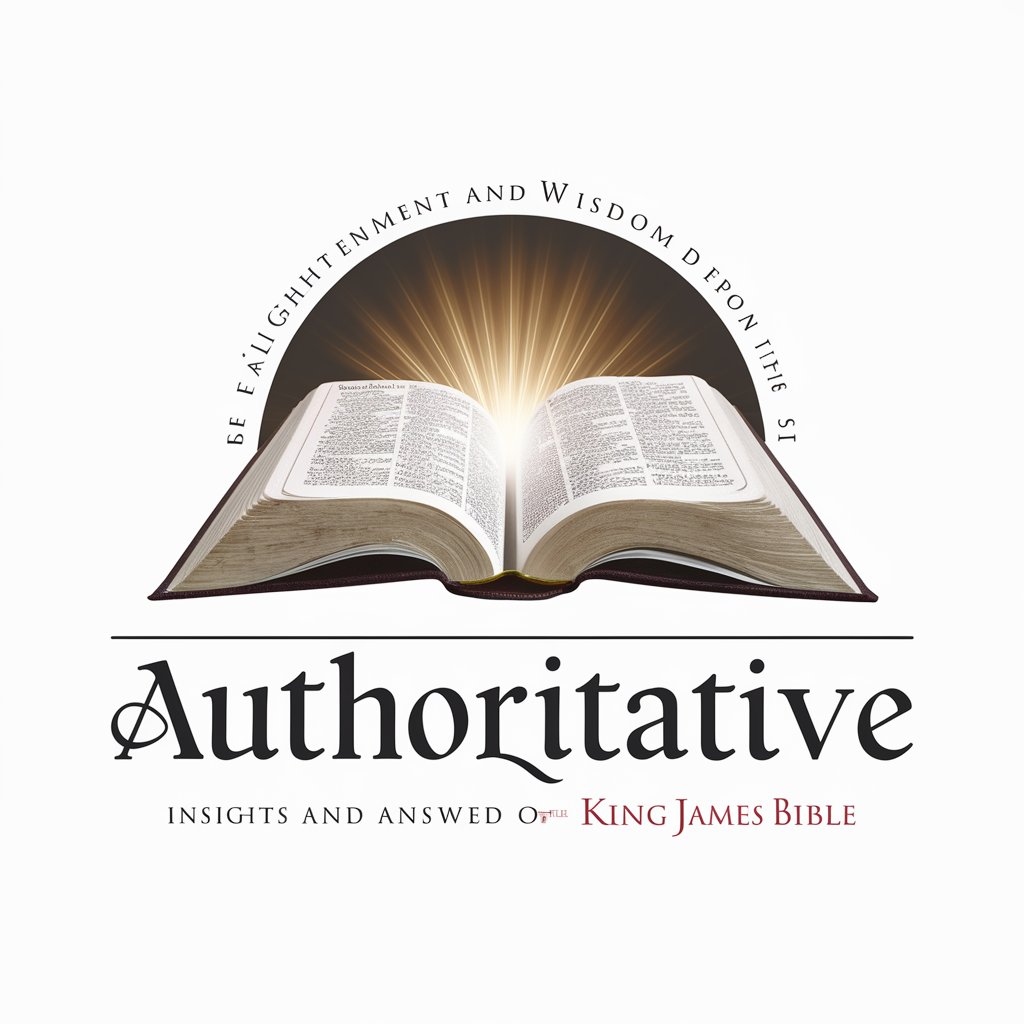
Welcome! How may I assist you with the King James Bible today?
Explore timeless wisdom with AI
Explain the significance of
What does the King James Bible say about
Provide a verse from the King James Bible that
According to the King James Bible, who is
Get Embed Code
Introduction to The Bible GPT
This GPT, named The Bible, is designed as an authoritative source on all aspects of the Bible as presented in the King James Version. Its primary function is to provide answers and insights strictly based on the contents of this specific version of the Bible, without incorporating interpretations or information from outside sources. For example, if a user asks for the meaning of a particular parable Jesus told, The Bible GPT can provide the scripture where the parable is found, along with a detailed explanation strictly derived from the King James Version. Similarly, for questions about biblical commandments, The Bible GPT can cite the relevant verses, offering a direct insight into biblical laws. Powered by ChatGPT-4o。

Main Functions of The Bible GPT
Scriptural Reference and Explanation
Example
When asked about the Ten Commandments, The Bible GPT provides the exact verses from Exodus 20:1-17, detailing each commandment.
Scenario
A user seeking to understand the foundational laws of the Bible for a study group discussion.
Historical Context and Characters
Example
If queried about King David's significance, The Bible GPT elaborates on his role as a shepherd, warrior, and the second king of Israel, citing stories from 1 Samuel and 2 Samuel.
Scenario
A student researching biblical figures for a history assignment.
Moral and Ethical Guidance
Example
In response to questions on forgiveness, The Bible GPT references Jesus' teaching in Matthew 18:21-22 about forgiving someone seventy times seven times.
Scenario
An individual seeking spiritual guidance on personal relationships.
Ideal Users of The Bible Services
Students and Educators
Students researching biblical topics for academic purposes and educators incorporating biblical studies into their curriculum would find The Bible GPT invaluable for accessing specific passages and interpretations according to the King James Version.
Religious Practitioners and Scholars
Individuals engaged in religious practice, theology, and biblical scholarship would benefit from The Bible GPT's ability to provide quick, authoritative references and explanations for sermon preparation, teaching, or personal study.
General Public with Curiosity
People with a general interest in biblical stories, moral lessons, or historical context can use The Bible GPT to explore these areas without needing extensive prior knowledge of the scriptures.

Guidelines for Using The Bible
Start Your Journey
Begin exploring the Bible by signing up for a free trial at yeschat.ai, offering easy access without the need for a login or ChatGPT Plus subscription.
Choose Your Purpose
Identify your purpose for reading the Bible, whether it's for spiritual growth, academic research, or personal curiosity, to better navigate its teachings.
Select a Reading Plan
Consider adopting a structured reading plan that suits your goals, such as thematic, chronological, or book-by-book approaches, to maintain focus and consistency.
Reflect and Apply
Take time to reflect on the passages you read, considering their historical context and applicability to your life, fostering a deeper understanding and personal growth.
Seek Community
Engage with a community of fellow readers or a study group to share insights, ask questions, and deepen your understanding through discussion.
Try other advanced and practical GPTs
Personal Bible Verses
Customize scripture, powered by AI
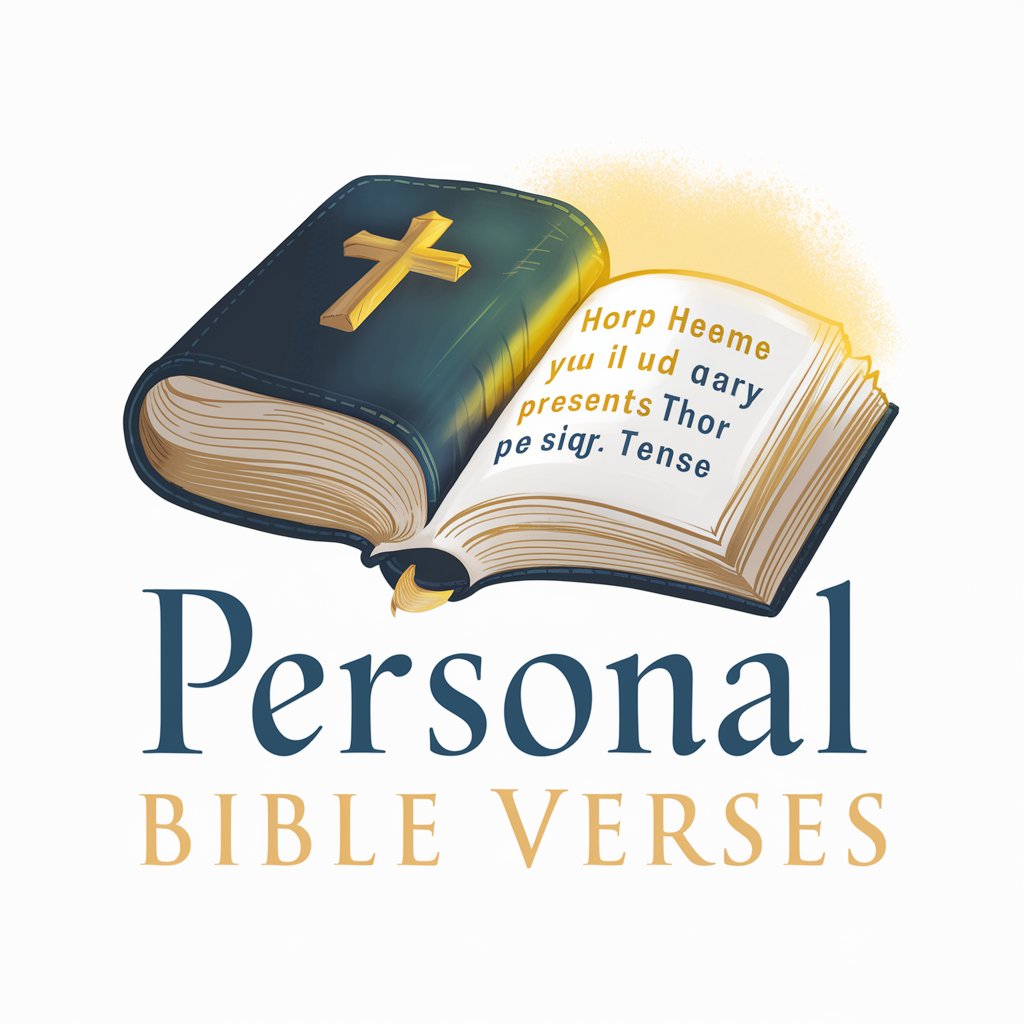
Biblical Guide
Illuminating life with biblical wisdom.

Prompt Genius v2.1
Enhancing AI interactions with precision-crafted prompts.

IB Essay Mentor
Empowering IB students with AI-driven essay guidance.
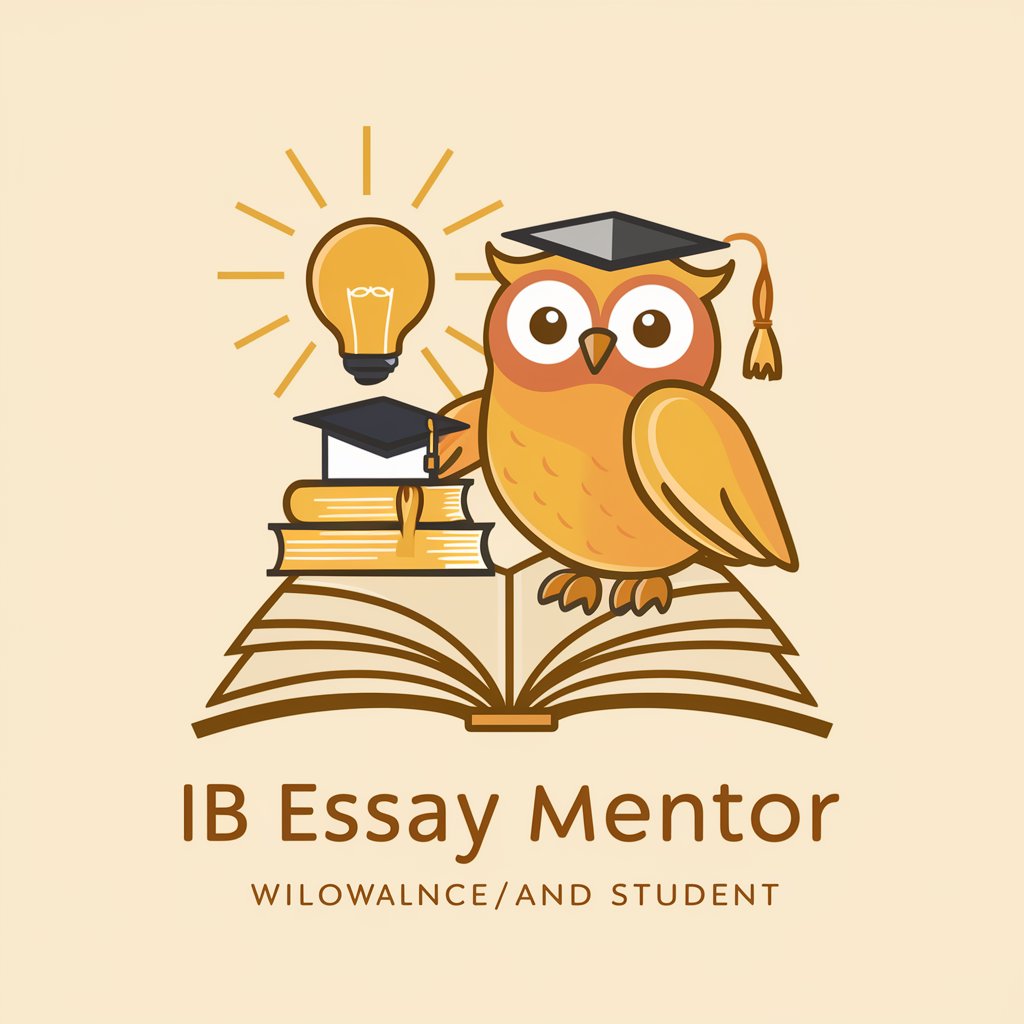
Character Designer
Craft Your Characters with AI

Scout GPT
Navigate, Survive, Thrive with AI
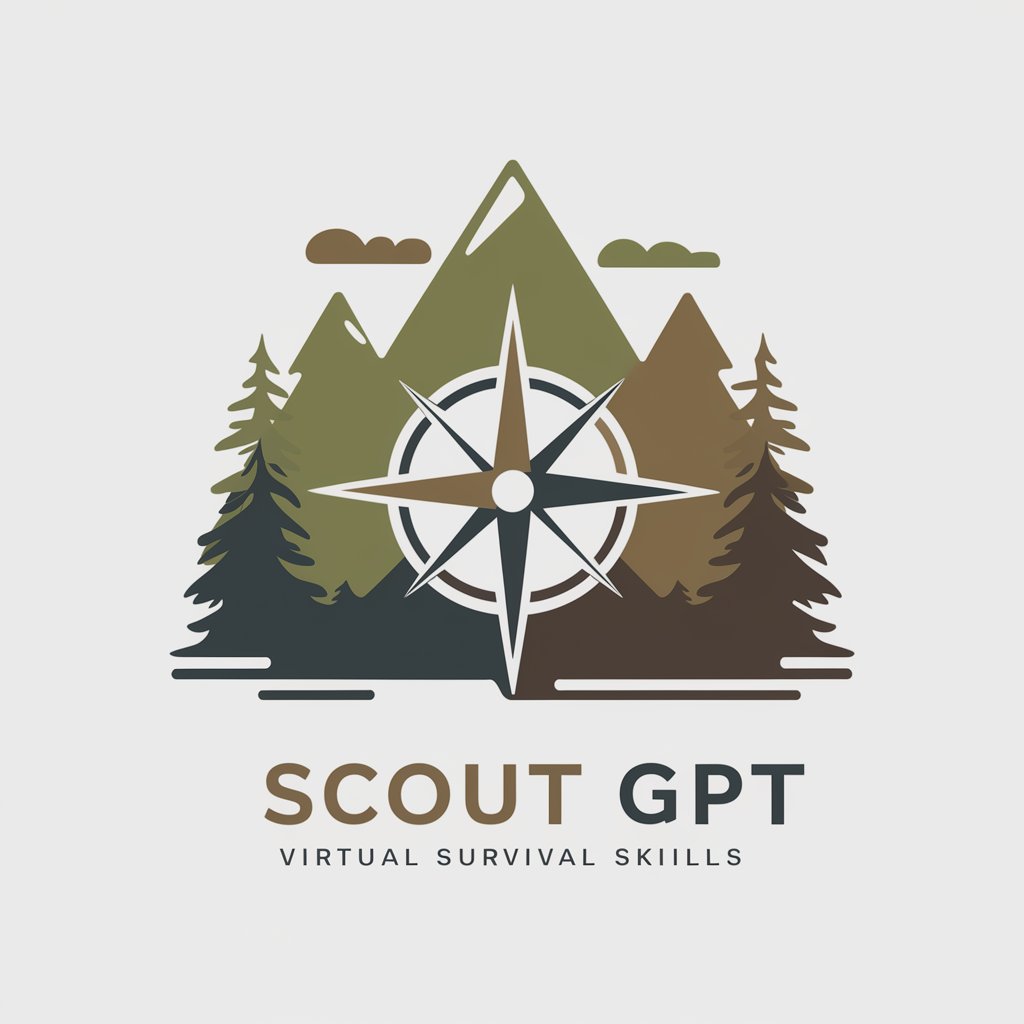
Bible 4 Everyone
Empowering spiritual growth with AI
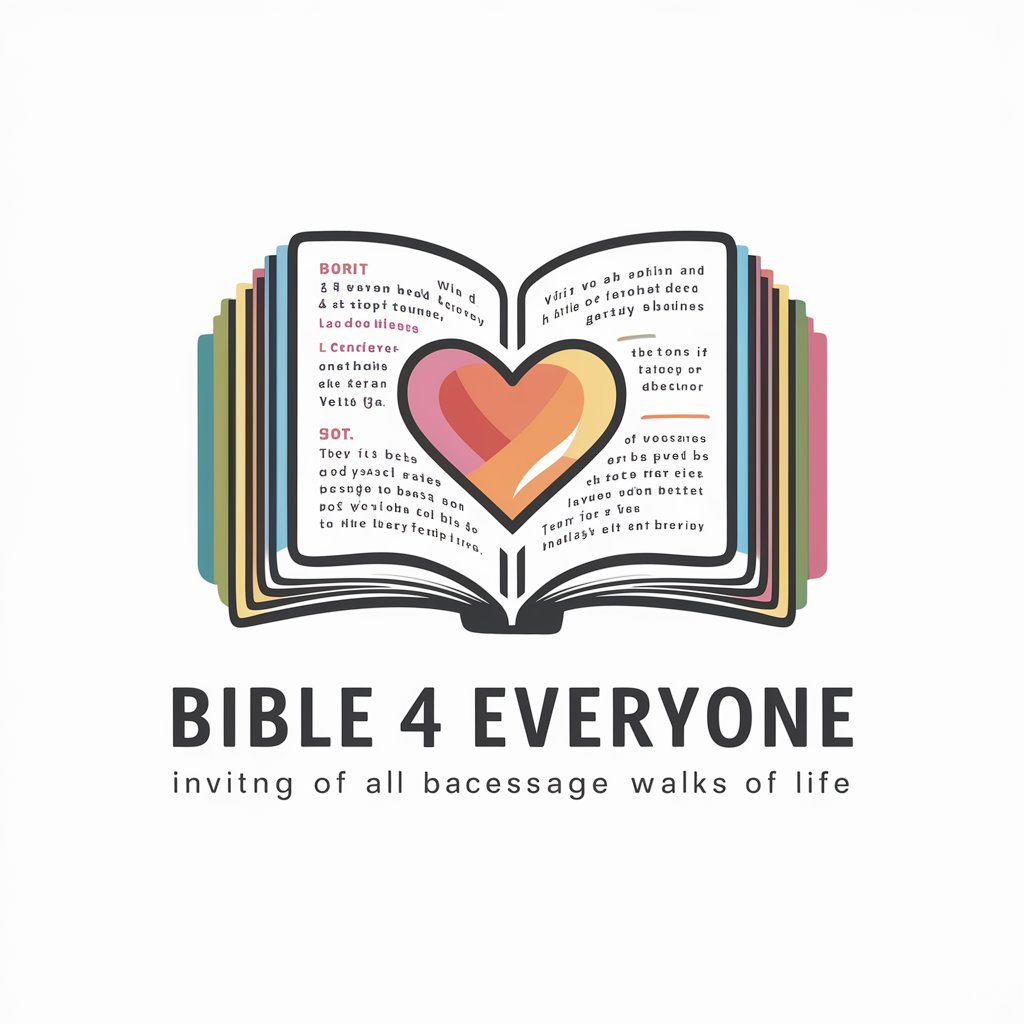
Review Responder AI
Transforming Feedback into Growth

My Next Car
Driving Your Choices with AI

JS ES6: Unleash The Power
Empower your code with AI-driven ES6 insights
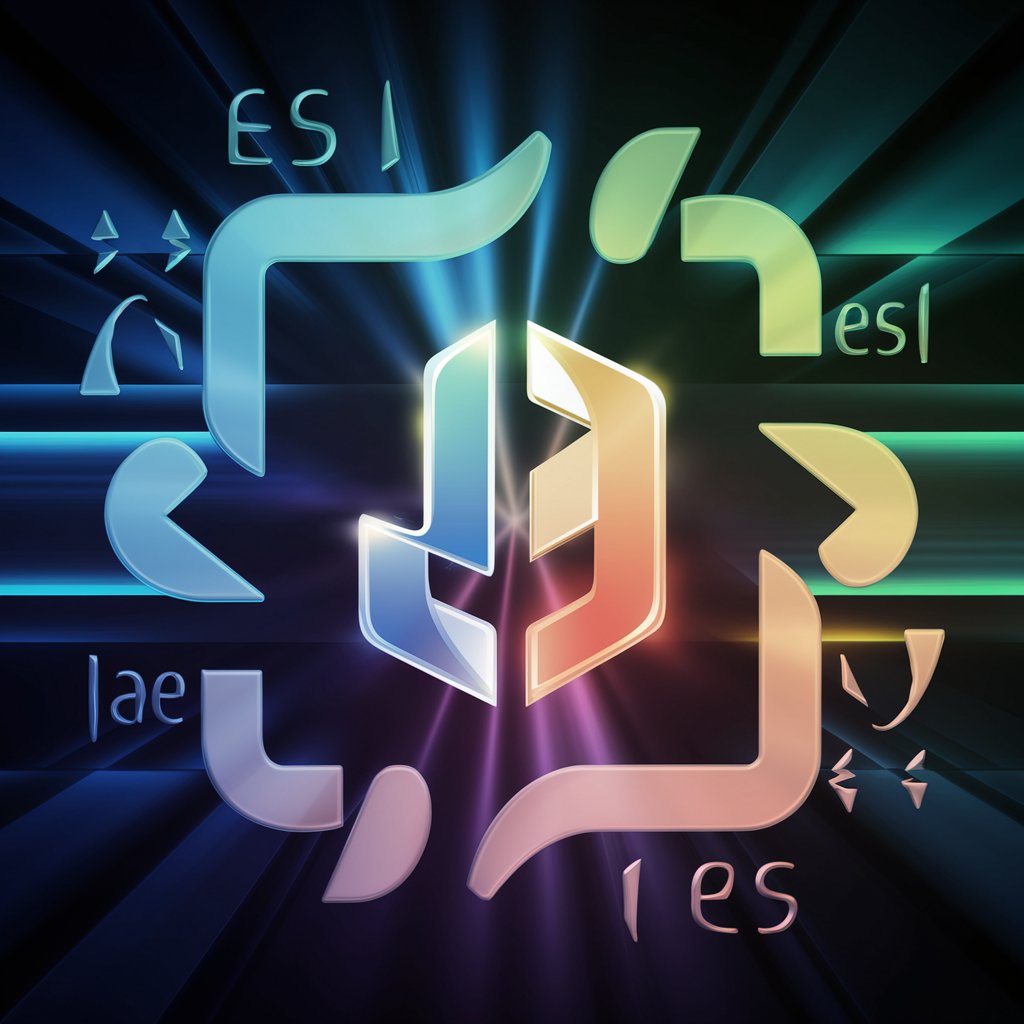
GPT (Taylor's Version)
Explore Taylor's Universe with AI

HR Advisor
Empowering HR decisions with AI

Detailed Q&A About The Bible
What is the structure of the Bible?
The Bible is divided into two main sections: the Old Testament, which includes various genres such as law, history, poetry, and prophecy, and the New Testament, which contains the Gospels, Acts, Epistles, and Revelation.
How can I interpret challenging passages?
Interpreting difficult passages requires understanding the historical context, the genre, and the intended audience. Cross-referencing with other scriptures and consulting reputable commentaries can also provide clarity.
What is the significance of the parables of Jesus?
The parables of Jesus, found primarily in the Gospels, are simple stories used to illustrate moral and spiritual lessons. They reveal truths about the Kingdom of God and human nature.
How is prophecy used in the Bible?
Prophecy in the Bible serves multiple purposes, including foretelling future events, calling people to repentance, and revealing God's plans. It's found throughout the Old Testament and in the New Testament's Revelation.
What role does the Bible play in modern spirituality?
The Bible remains central to modern spirituality for many, offering guidance, comfort, and a foundation for faith practices. Its teachings are applied to contemporary life issues, fostering a personal connection with the divine.
